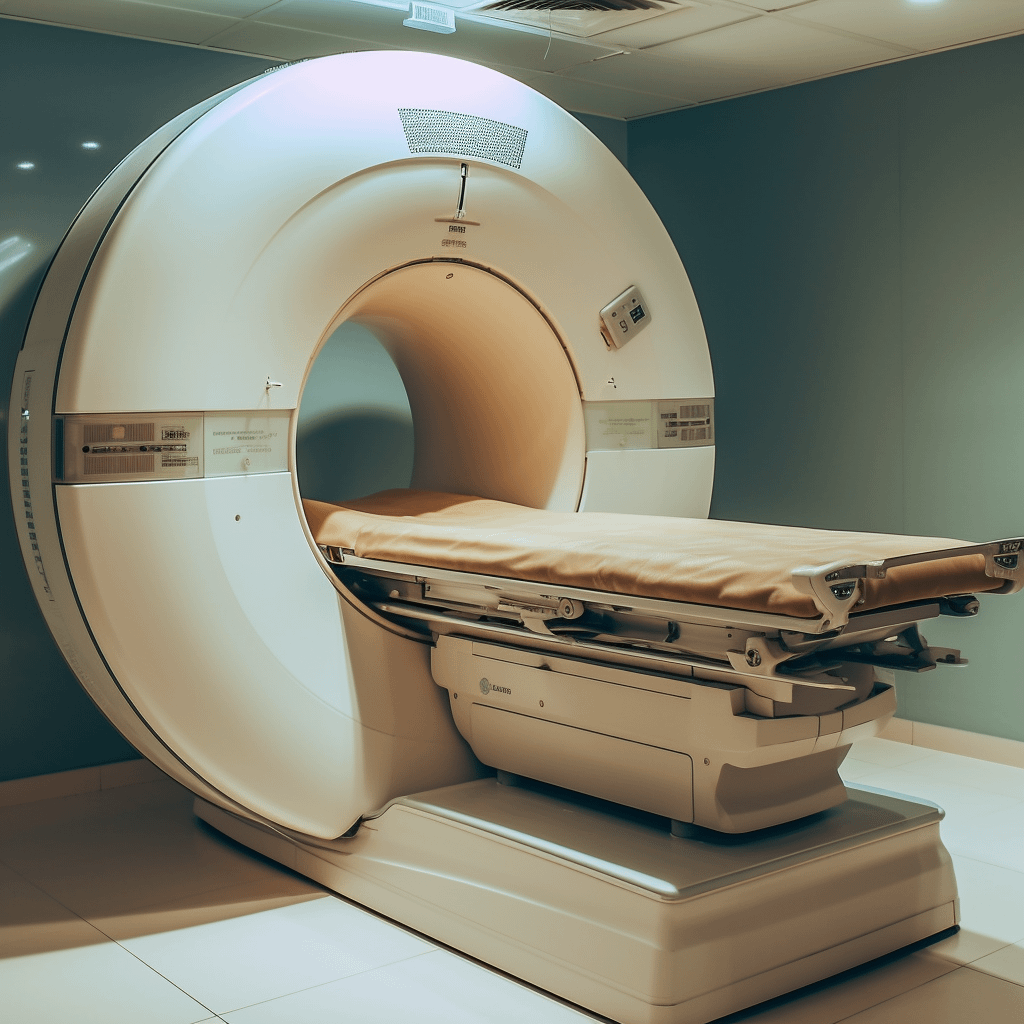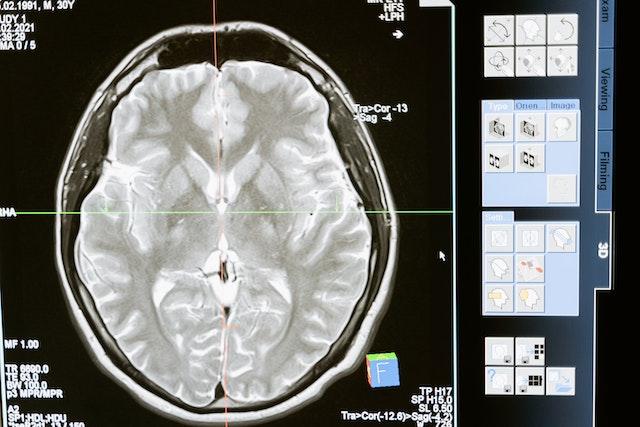Traumatic brain injuries (TBIs) come in many forms, and no two people will be affected in precisely the same way. While one person may end up with a mild concussion and be back to normal life after a few weeks of rest, another person’s ability to function may be permanently altered. The unpredictable nature of each injury can make a TBI an even more stressful and frightening experience.
Traumatic brain injuries are unfortunately common in car, truck, and motorcycle accidents. In fact, car accidents are one of the leading causes of traumatic brain injuries in the United States, according to the Centers for Disease Control and Prevention (CDC).
If you or a loved one suffered a traumatic brain injury in a car accident, our team can help you move on and potentially recover some of your losses. Let a traumatic brain injury lawyer with CarAccident.Law help you understand your rights and options after suffering a catastrophic injury in an auto accident.
What is a Traumatic Brain Injury?
The CDC defines a traumatic brain injury as “a disruption in the normal function of the brain that can be caused by a bump, blow, or jolt to the head, or penetrating head injury.” There are many types of brain injuries, such as concussions, contusions, and hemorrhages, but they all generally fall under two main classifications: closed brain injuries and penetrating brain injuries. Both types of traumatic brain injuries commonly result from auto accidents.

Closed Head Injuries
A closed brain injury occurs when someone suffers a blow or bump to the head, causing the brain to move around inside the skull. While the skull stays intact, a closed brain injury can result in severe bruising or bleeding, depending on how hard the brain is jolted. Even a seemingly mild closed brain injury should be examined and diagnosed by a doctor to rule out more serious risks, such as bleeding in the brain or a life-threatening blood clot.
Symptoms of a concussion that should never be ignored include:
- Headache, especially one that persists or worsens over time
- Drowsiness or difficulty staying awaken
- Vomiting
- Seizures or convulsions
- Weakness or numbness in the arms or legs
- Unsteadiness, dizziness, or clumsiness
- Unequal size or shape of the pupils
- Blurred vision
- Blood or clear fluid leaking from nose or ears
- Slurred speech
- Confusion or irritability
- Scalp swelling
- Amnesia
- Changes in behavior, especially in children
Penetrating Brain Injuries
A penetrating brain injury, on the other hand, occurs when something breaks through the skull and pierces the brain, such as a piece of debris or even a piece of the skull itself. These TBIs can be life-threatening and require immediate medical attention. Take all traumatic brain injuries after a car accident seriously, and when in doubt, get yourself seen by a medical professional.
Accident Injuries Related to TBIs
How Do Car Accidents Cause TBIs?
Any blow to the head can cause a traumatic brain injury. Because of the risk of jolts, bumps, and sudden movements, car accidents commonly result in TBIs. In a motor vehicle accident, a person’s head can hit the windshield, wheel, window, or ceiling as a result of the impact, potentially causing the brain to bounce inside the skull.
In rare auto accident cases, a piece of broken glass or metal may even break through the skull and cause a penetrating brain injury. About 17 percent of TBI-related deaths in 2018 and 2019 were due to accidents involving motor vehicles.
It is worth noting that certain factors can exacerbate a car accident traumatic brain injury, such as inclement weather, driver intoxication, distractedness, and speeding. These factors can delay a person’s reaction time and increase the impact of a collision, thereby worsening any head injuries suffered in the crash.
Additionally, certain factors may increase a person’s risk of suffering a fatal TBI. The CDC warns that risk factors for increased death rates from traumatic brain injuries include having a lower income and reduced access to health insurance, or living in a rural area. People in these circumstances who are left with a TBI from a car accident may experience longer travel times to receive emergency medical care and less access to a Level 1 trauma center, or they may be denied necessary traumatic brain injury medication or TBI procedures such as MRI or CAT scans, craniectomy or craniotomy, ventriculostomy, intracranial pressure monitor placement, arterial line placement, or central line placement due to financial limitations.
If you are worried about the cost of seeking medical care after a TBI caused by a car crash, a traumatic brain injury lawyer with CarAccident.Law may be able to help. The attorneys in our network can help you recoup your costs and medical bills after a severe car accident and resulting traumatic brain injury. The first and most necessary step, however, is seeing a doctor. Don’t risk your health any further after an auto accident, especially when there may be legal aid available to help you cover the costs.
Traumatic Brain Injury Crash Types
Traumatic Brain Injury Car Accident Statistics
There are over 1.5 million traumatic brain injury cases reported every year in the United States. In 2021, there were over 69,000 TBI-related deaths in the US. This means there were about 190 TBI-related deaths per day in 2021. Additionally, the CDC estimates that there are over 100 deaths due to car accidents every day in the US, making motor vehicle crashes and traumatic brain injuries two of the leading causes of death in the country.
When TBI-related deaths are broken down per age group, children and young adults are at the highest risk of passing away due to a traumatic brain injury from a car accident. Death by motor vehicle accident TBI accounts for 29.2 percent of all traumatic brain injury deaths for children ages 0-4 years. Additionally, motor vehicle traffic accidents account for over half of TBI-related deaths in children ages 5-14 years, at 55.8 percent. Finally, almost half (47.4 percent) of TBI-related deaths in young adults ages 15-24 years are caused by car accidents.
If your loved one suffered a fatal traumatic brain injury in a car accident, our compassionate attorneys can help take care of the legal aftermath so you can focus on grieving. The compensation awarded in a successful wrongful death auto accident claim can help cover some of the unexpected expenses that come with a loved one’s passing.
What Are the 4 Types of Traumatic Brain Injuries?
While closed and penetrating brain injuries are most common in car accidents, there are two other kinds of TBIs to consider:
- Anoxic brain injuries: These kinds of TBIs involve a lack of oxygen to the brain. Car accidents involving fire or bodies of water may involve anoxic brain injuries due to the inhalation of smoke, toxic fumes, or water. Additionally, contusions may occur when the brain is battered in the skull, often by a serious rear-end accident. Swelling from the bruising may lead to a lack of oxygen to the brain and, ultimately, an anoxic brain injury.
- Diffuse axonal injury: Diffuse axonal injury (DAI) is another, rarer form of traumatic head injury that involves tearing or breakage of white matter tracts in the brain. A severe DAI can result in comatose. Less serious DAIs can have varying impacts on neurological function. The disparity in effects of TBIs is what makes seeing a doctor immediately after a car accident so important.
In general, traumatic brain injuries may be ranked on the Glasgow coma scale (GCS), which considers the following three brain functions:
- Eye opening: 4=spontaneous; 3=to voice; 2=to pain; 1=none
- Verbal response: 5=normal conversation; 4=oriented conversation; 3=words, but incoherent; 2=no words, only sound; 1=none
- Motor response: 6=normal motor response; 5=localized to pain; 4=withdraws to pain; 3=decorticate posture; 2=decerebrate
TBIs with a ranking of 13 to 15 on the GCS scale are classified as mild, and might include a concussion after a car accident. A GCS of nine to 12 is considered moderate, and a GCS of anything less than eight is considered severe trauma.

The aftermath of a car accident brain injury and the recovery process can vary greatly from person to person. The severity and effects of a traumatic brain injury range from hardly noticeable to extremely debilitating. While one person with a mild TBI may have a headache that eventually fades or some mild amnesia, another individual may find themselves unable to walk, speak, or live independently after a serious auto accident.
The effects of a traumatic brain injury are often attributable to the part of the brain that was injured. For example, trauma to the frontal lobe, which is responsible for planning, reasoning, and logic, can lead to impulsivity, reasoning challenges, and risky decisions. On the other hand, damage to the left hemisphere of the brain may cause difficulty with verbal communication and understanding others, and trauma to the right hemisphere is associated with difficulty processing visual information.

What Are the Long-Term Effects of a Traumatic Brain Injury?
Some potential long-term effects of a traumatic brain injury from a car accident include:
- Comatose state
- Confusion
- Shorter attention span
- Amnesia or memory loss
- Difficulty solving problems
- Problems with abstract thinking
- Poor judgement
- Loss of sense of time and space
- Problems with self awareness, awareness of others, and perception
- Problems with vision, such as double vision, lack of depth perception, and more
- Paralysis
- Weakness in muscles or certain body parts
- Muscular spasticity
- Problems with balance
- Less endurance
- Difficulty with multi-step motor movements
- Tremors
- Problems swallowing
- Lack of coordination
- Sensory deficits, like changes in taste, smells, vision, or touch
- Lack of sensation
- Loss of consortium
- Perceptual or sensory deficits
- Aphasia, which includes the difficulty speaking, understanding speech, or choosing words
- Alexia, which is difficulty reading
- Agraphia, which is difficulty writing
- Apraxia, which is difficulty with regular tasks and actions such as dressing oneself or brushing one’s teeth
- Decreased vocabulary
- Inability to live independently
- Inability to drive or operate machinery
- Social difficulties or impaired social capacity
- Fatigue
- Nausea
- Disturbed sleep
- Headaches
- Loss of bowel or bladder control
- Psychiatric disturbances caused by chemical imbalances
- Traumatic epilepsy, especially surfacing in years after a severe TBI or penetrating TBI
Short-Term Effects of TBIs
Even a mild TBI can take a toll. While symptoms of a mild TBI are more manageable and generally fade over time, you may still find that you need to take time away from work and responsibilities to recover fully.
Some short-term effects of TBIs include:
- Headaches
- Nausea or vomiting
- Fatigue or drowsiness
- Some problems with speech
- Dizziness or loss of balance
- Blurred vision
- Ringing in the ears
- Temporary changes in taste or smell
- Heightened sensitivity to light or sound
- Confusion or disorientation
- Some mild memory loss, usually during the accident
- Depression or anxiety
- Changes in your sleep patterns
Many symptoms of mild and severe TBIs overlap, making it crucial to see a doctor as soon as possible after a car accident to ensure that what may appear as a mild head injury is not a severe and life-altering traumatic brain injury.
Healing from a traumatic brain injury is not the same as recovering from a broken arm. One major difference is that recovery time is not always predictable with TBIs. Factors such as age and location of the injury can make a significant difference in how the brain recovers. While some mild TBIs improve with rest and time away from work, others require rehabilitation or even life-long care. Additionally, other problems may arise during the recovery process, such as personality changes, psychiatric concerns, and traumatic epilepsy.
Brain cell functionality and how the brain recovers after a traumatic injury is still being studied today. However, most scientific results suggest that once brain cells are damaged, they do not regenerate. Fortunately, recovery is possible, as uninjured areas of the brain may make up for the difference and begin to reroute information and function around the damage.

Can I Claim Compensation for a Brain Injury?
Aside from changing the way someone functions and lives their life, traumatic brain injuries can also be financially devastating. For example, a person who suffers a TBI in an auto accident may need to stay in the hospital for an extended period of time while they recover, then seek additional outpatient care after they are discharged. Depending on the extent of their traumatic brain injury, an individual may have new medications to take or therapy to complete, such as physical, speech, or vocational therapy. All of these expenses can add up and feel overwhelming during a time when you need rest and recovery.
Help is available. It may be possible to recover some of the costs associated with a car accident TBI through an insurance claim or personal injury lawsuit, depending on your circumstances. When it comes to auto accidents, every state imposes different laws and limitations on an injured person’s ability to pursue compensation.
Some states are no-fault, meaning all parties to an accident can file a claim through their own insurance policies to recover their losses, regardless of who caused the collision. Other states require you to prove fault in an injury lawsuit if you want to be compensated for your accident related losses.
In no-fault states like Massachusetts, drivers are required to carry a certain minimum amount of insurance, known as compulsory coverage. This minimum required coverage typically includes some amount of Personal Injury Protection (PIP) for medical bills and a percentage of someone’s lost wages.
However, your eligibility for compensation under the no-fault system may change if you are seriously injured. For example, Massachusetts law considers an injury “serious” if it results in more than $2,000 in “reasonable medical expenses,” loss of hearing or sight, broken bones, or a permanent disability. Serious injuries caused by another driver’s negligence qualify an injured driver in Massachusetts to file a third-party insurance claim for damages through the negligent driver’s insurance policy. A traumatic brain injury resulting from a car accident may qualify as a serious injury under state law.
Filing a third-party insurance claim is just one option for recovery after a car crash TBI. If you can prove the other driver’s negligence through a preponderance of evidence, a car accident lawsuit may be the best option for recovering damages which are not covered by insurance, such as pain and suffering, emotional turmoil, and estimated future costs of care.
Special Damages for Head Injuries Caused by Car Accidents
In general, there are different kinds of economic damages, or special damages, to consider when filing a car accident lawsuit after suffering a head injury. While there are obvious immediate expenses that pile up, such as ambulance rides, medical care, and car repair bills, there are also other costs that a car accident lawsuit can help you recover, including:
- Medical bills, both past and future
- Rehabilitative care costs
- Expenses related to any at-home modifications necessitated by a severe traumatic brain injury
- Missed wages during time off work
- Property damage
- Funeral and burial costs after the loss of a loved one
General Damages for a Car Accident TBI
In addition to special damages, there may be non-economic damages, or general damages, that can be accounted for in a car accident lawsuit which are generally not covered by insurance. For this reason, it may be worthwhile to consult with a car accident attorney to find out if your additional costs are better suited to filing a claim in a court of law, in addition to your insurance settlement.
Examples of general damages which may be recoverable in a car accident TBI lawsuit include:
- Pain and suffering
- Emotional trauma
- Lasting disability
- Loss of consortium
- Loss of enjoyment of life
- Loss of a loved one
- Loss of income
Recovering Future Damages for a Car Accident Brain Injury
Due to the heightened risk of long-term effects, a traumatic brain injury often involves immediate and future damages, as TBIs may impose certain lifestyle changes. The average insurance settlement, especially after a car crash with only minimum coverage, may not be able to cover the full extent of your expected future costs for a traumatic brain injury, which may include:
- Future medical bills
- Ongoing rehabilitative care and therapies
- Diminished earning capacity and loss of employment opportunities
These traumatic brain injury related damages may only be recoverable through a car accident lawsuit. It may be in your best interests to connect with a traumatic brain injury attorney in your area to discuss the details of your case and go over your rights and legal options.

Recover Your Losses in an Accident Lawsuit
STEP-BY-STEP GUIDE TO FILING A TRAUMATIC BRAIN INJURY LAWSUIT
Filing a car accident traumatic brain injury lawsuit is a complex process and can be confusing. Here’s a guide to help you with each step of the car accident TBI lawsuit process.
The statute of limitations is how long you have to file a lawsuit for damages resulting from your accident. This length of time varies from state to state. For instance, in Massachusetts, the statute of limitations to file a lawsuit after a car accident is three years from the date of injury.
If you wait too long to file a car accident lawsuit after a TBI, your case may end up being dismissed due to the statute of limitations having expired. When in doubt, consult with a traumatic brain injury lawyer in CarAccident.Law’s network. Importantly, certain circumstances can extend or shorten the statute of limitations. A traumatic brain injury attorney can help you navigate the procedural hurdles involved with filing a TBI car accident injury lawsuit, and ensure that your claim receives the fullest consideration possible.

Traumatic Brain Injury Resources Near Me
After a traumatic brain injury, you might find that you or your loved ones require additional support and care.
Various therapies are available for traumatic brain injury patients to help overcome the challenges of living with a new disability. Additionally, traumatic brain injury support groups may be able to provide valuable insight into the emotional needs that arise from caring for someone with a TBI. A list of state-wide TBI organizations affiliated with Brain Injury Association of America that offer online support groups can be found here, otherwise here are some national options:
- Penn Medicine’s Traumatic Brain Injury Support Group
- Family Caregiver Alliance
- Caregivers Assist Support Group
Furthermore, dedicated traumatic brain injury rehabilitation centers can help you receive long-term care from experts that can improve your quality of life and enjoyment after a car accident TBI.
The following represent commonly asked questions about traumatic brain injuries arising from car accidents, as answered by the experts at CarAccident.Law. No question is too small when seeking answers and compensation after a traumatic brain injury caused by a motor vehicle accident.

Is a concussion a traumatic brain injury?
Yes, a concussion is considered a mild traumatic brain injury, or TBI. While most people recover fully from a concussion without lasting symptoms, it is still important to be seen by a doctor if you have experienced a head injury. Mild and severe TBIs have overlapping symptoms, so what may appear as a mild concussion could be much more severe.
Is a traumatic brain injury a disability?
A traumatic brain injury can lead to disability, whether temporary or lasting. A common outcome of moderate to severe TBIs is disability, such as problems with speech, movement, or perception.
What is the life expectancy of someone with a TBI?
With a mild TBI and proper care, the prognosis is usually positive. When a mild TBI is diagnosed early and properly treated, you may see no difference in functioning or life expectancy. However, with moderate to severe TBIs or those that are left untreated, you may see a drastic change in potential outcomes. According to the CDC, a person’s life expectancy after a moderate to severe TBI when receiving appropriate medical care in the United States is, on average, nine years shorter.
Can TBI cause permanent brain damage?
Yes, a TBI can cause permanent brain damage if the accident is severe enough and if the injury is left untreated. There are many different kinds of permanent brain damage, and how they manifest in patients varies. Some patients may experience difficulty with cognition and daily functioning, while others may have less drastic results such as a brief period of memory loss. In cases where permanent brain damage includes an altered chemical makeup, patients may experience personality changes and increased risk of psychiatric disorders for an indefinite amount of time.
Can you fully recover from a traumatic brain injury?
Many patients with a mild traumatic brain injury make a full recovery over a few days or weeks. For those with more severe injuries, improvement can be possible, even if a full recovery is not. The process of recovery and expected outcome depend entirely on the specifics of the TBI, as well as other variables including age, medical care, and pre-existing health conditions. At times, improvement to quality of life may happen years after the initial injury.
Do traumatic brain injuries get worse over time?
After a car accident, you may experience traumatic brain injury symptoms years later. Neurotrauma can worsen significantly over time, especially in cases without appropriate rehabilitative care. The CDC observes that about half of people with a moderate to severe TBI will experience further decline or death within five years of their injury, even after seeking medical care. Out of patients 16 years of age or older who experienced a moderate to severe TBI, 22 percent passed away, 30 percent became worse, 22 percent stayed the same, and 26 percent improved over a five-year period after the initial injury.
What is the average payout for traumatic brain injury?
Our case calculator tool can help you understand the various factors to consider when calculating your car accident traumatic brain injury damages. Because the specifics of recovering from a TBI vary so greatly, there is no average payout after a car accident case involving a TBI. Do not trust any traumatic brain injury lawyer who says they can guarantee you a certain number, or who promises a successful outcome before they hear the specifics of your case.
Case Calculator
Evaluate your claim in as little as 30 seconds

Does a traumatic brain injury increase value of car accident case?
In addition to the ongoing medical and rehabilitative needs often associated with severe traumatic brain injuries, even mild TBIs may involve increased medical costs due to the need for imaging tests to rule out more serious concerns. As a result, a traumatic brain injury can increase the value of a car accident claim.
How long does it take to settle a TBI case?
There is no specific timeline for resolving a TBI case, but traumatic brain injury car accident settlements usually take anywhere from 1 to 3 years. Factors that might extend a case include ongoing medical costs and care, mounting medical bills, and disputed liability.
A Traumatic Brain Injury Attorney Can Help You Recover after a Car Accident
Navigating life with a traumatic brain injury can be difficult, and the additional stress of a lawsuit or an insurance claim might be too much. CarAccident.Law is here to help. Our network of experienced traumatic brain injury lawyers knows the insurance claim and civil lawsuit processes well. We can take on the stress of handling your claim and get you on the path to financial and physical recovery. Our expert traumatic brain injury attorneys are here to help with a free consultation today.











